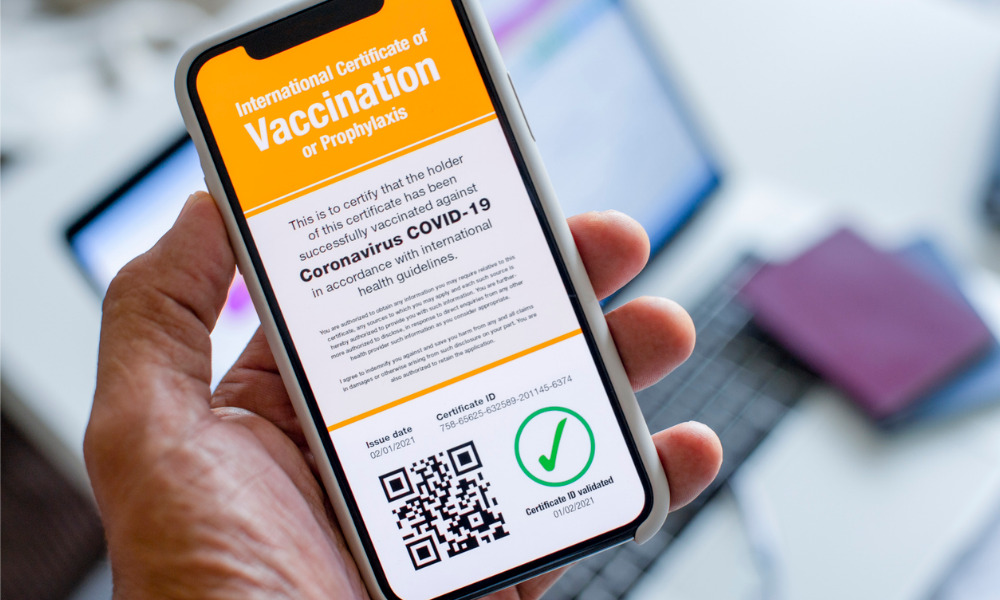
The province will also introduce an app to help businesses

Ontario government officials have announced that they will implement COVID-19 vaccine certificates in high-risk indoor settings, beginning September 22, as the province braces for a fourth wave. The provincial government issued a list of settings covered by the implementation of the scheme, which will require patrons to acquire a vaccine receipt before entry to the following businesses:
Residents can pick up their vaccine certificates from the provincial government website, which will indicate whether they received the first dose or are already fully vaccinated against COVID-19. However, the scheme will not apply to essential retail, such as grocery stores and other personal care businesses, with Health Minister Christine Elliott explaining that no one should be deprived from medical care or food regardless of vaccine status.
The scheme also exempts children who are ineligible for vaccines, as well as employees who work in high-risk indoor settings, according to a report from CBC. A month after its implementation, the government on October 22 will introduce certificates with QR codes and a verification application that will provide the vaccination status of an individual.
According to the provincial government, the app is expected to help businesses in verifying whether their customers have been vaccinated. The application will also allow non-essential retailers to implement their own vaccination policies. Despite this plan, however, the Canadian Federation of Independent Businesses (CFIB) said in a statement reported by CBC that there are still issues on fraud and enforcement, as well as questions on how businesses are supposed to recognise out-of-province and out-of-country vaccinations. It also expressed its disappointment of the province's decision to add more requirements without lifting capacity restrictions in businesses.
Confusion plagues employers even in other provinces set to introduce vaccine passports, particularly on its implementation for employees and customers. Some are wary of legal repercussions should they implement vaccine policies in their businesses, according to some reports.
Read more: Vaccine passports: What are the legal ramifications for Ontario employers?
Initially, Ontario Premier Doug Ford was somewhat against the implementation of vaccine passports as he thought it could "split society." The shift in his stance, however, came after "in-depth conversations" and advice from experts. The premier on Wednesday said it is "no secret" that he was not in favour of the move, but it was a necessity after hearing the side of health officials.
"We need to protect our hospitals; we need to avoid lockdowns at all costs. We want our kids in schools, and our businesses to stay open," he said as quoted by CBC.
The province has previously announced that it will be mandating vaccines for hospital workers, as well as staff of home and community care service. It also introduced a vaccination disclosure policy for all workers of public and private schools.
Read more: Ontario mandates vaccination policy for health sector
The new policies arrived as the government made known that "Ontario is in the fourth wave of the COVID-19 pandemic."
A new model from Ontario's Science Advisory Table predicted a "substantial fourth wave" of the pandemic, which will affect "all age groups with the potential to exceed ICU capacity." According to the model reported by CTV News, case counts could hit 9,000 by October as the worst-case scenario, but it could also fall under 500 in a more optimistic take.